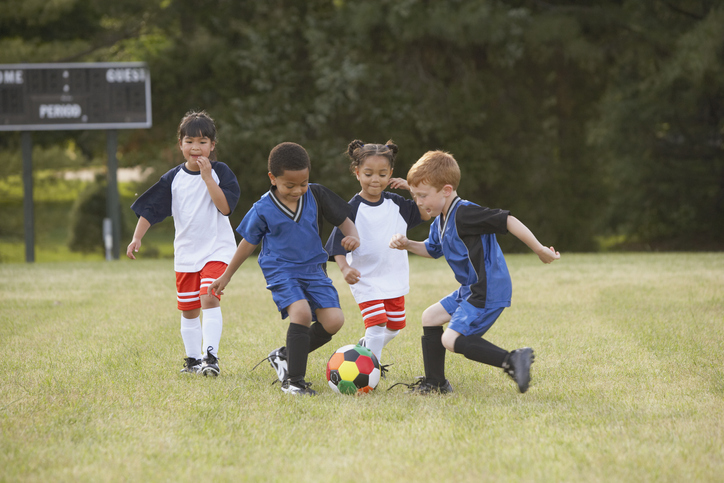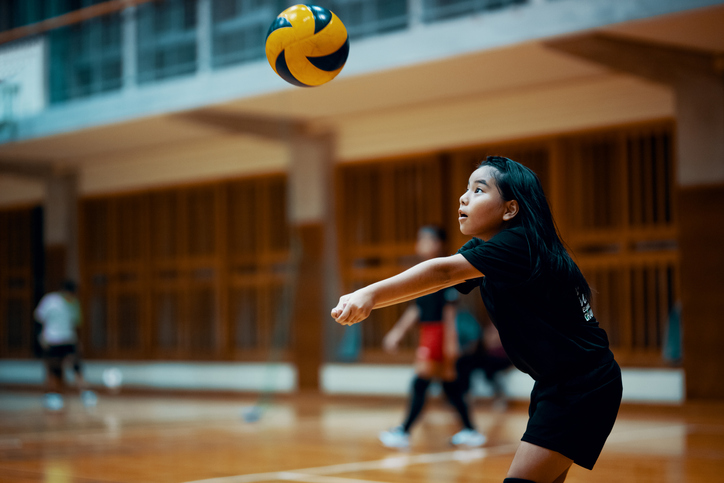Celebrate National Youth Sports Week

By Joy Stephenson-Laws, JD, Founder
A popular TikTok mom named Mo recently made a video that resonated with many working mothers who have young children in organized sports and extracurricular activities. Mo vented about how hard of a balancing act it really is.
“It just doesn't even make sense. It feels unsustainable. Like, how long am I going to be able to do this? I don't know. I'm going to work. I'm getting off work. I got a round everybody up. I got a school-aged child. I got babies at daycare,” Mo said.
“I got to make sure I got his stuff for football. I got to make sure I got their snacks. I got to make sure I got a portable potty ... When I'm done doing that, sitting there trying to entertain the little ones while the big one is practicing, I then have to go home, wash everybody up, feed everybody, get everybody down for sleep, and do it again the next day.”
This is most definitely exhausting, to say the least, and my hat goes off to all of the moms, dads and single parents trying to do it all so that their kids can play sports. If you are one of these parents and feel like you are drowning in work and practice and game schedules, this is a reminder that you are doing something incredible for your children and you are doing a great job.
(Check out this unbelievable story about a mom of 16 (yes, 16!) who reportedly homeschools all of her children and drives them to 88 sports practices a week!).
It’s National Youth Sports Week, and playing sports has the potential to have a very positive impact on children not only physically but also mentally.
A recent study conducted by researchers from the University of Queensland found evidence which exhibited that children who participate in sports are more likely to have better long term mental health, according to a report from News Medical that discusses the study.
The researchers analyzed data from more than 4,200 Australian children over an eight year period. A variety of sports were looked at, including football, cricket, karate, tennis and gymnastics.
“We found there was a positive impact on mental health regardless of the type of sport, however children who played in a team experienced greater benefit,” said Asad Khan, associate professor of biostatistics and lead of the study.
“This could be due to the social aspects involved such as being surrounded by supportive peers, opportunities to form friendships, and working towards a collaborative goal."
The study also revealed that young girls need more encouragement to get involved in team sports.

“Over the past three decades, childhood obesity rates have tripled in the U.S., and today, the country has some of the highest obesity rates in the world: one out of six children is obese, and one out of three children is overweight or obese,” according to Harvard T.H. Chan School of Public Health.
(A previous pH must-read - Why You Should Really Root For Your Child to Play Sports)
Of course, regular physical activity through sports can help in the fight against childhood obesity. Furthermore, research has shown that kids who participate in sports are more likely to have better body image. This, in turn, can encourage healthier habits.
If you are unable to put your child in organized sports, know that engaging in sports and physical activity with your child at home also has the potential to be highly beneficial.

Good nutrition is important for every child and adolescent but especially if he or she plays sports. We need to ensure they have the proper nutrients, such as vitamins and minerals, to fuel their bodies both before and after physical activity. To learn more about what nutrients your child may need, read here.
And last but not least, make sure that your child takes routine nutrient tests in order to identify any nutrient imbalances or deficiencies. If an imbalance or deficiency is discovered, a competent healthcare professional can help you and your child make the necessary dietary changes and recommend quality supplements if necessary.
Enjoy your healthy life!
Disclaimer: This article is not intended to provide medical advice. Please consult with your doctor or another competent healthcare practitioner to get specific medical advice for your situation.
The pH professional health care team includes recognized experts from a variety of health care and related disciplines, including physicians, attorneys, nutritionists, nurses, and certified fitness instructors. This team also includes the members of the pH Medical Advisory Board, which constantly monitors all pH programs, products, and services. To learn more about the pH Medical Advisory Board, click here.







